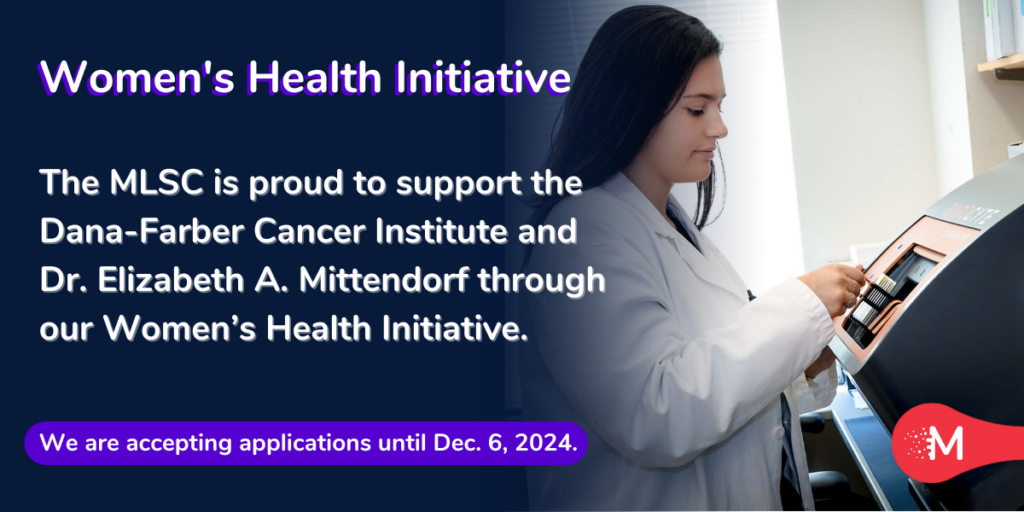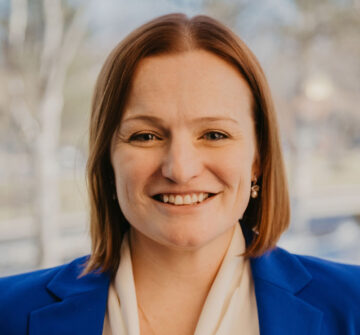As part of its ongoing commitment to supporting research in women’s health, the Massachusetts Life Sciences Center (MLSC) is proud to highlight the Dana-Farber Cancer Institute and Dr. Elizabeth A. Mittendorf’s project on leveraging digital pathology to identify and cure high risk breast cancer. Dr. Mittendorf is the Director of the Breast Immuno-Oncology program, Co-Leader of the Parker Institute for Cancer Immunotherapy at the Dana-Farber Cancer Institute, and Co-Leader of the Breast Program for the Dana-Farber/Harvard Cancer Center.
Partnering with PathAI, Dr. Mittendorf was awarded more than $740,000 through the MLSC’s Women’s Health Collaboration program in 2021. Her project involved designing computer algorithms capable of identifying features in tumor biopsies and surgical specimens that can distinguish between high- and low-risk breast tumors. According to the U.S. Centers for Disease Control and Detection, breast cancer is the second most common cancer among women in the United States. Moreover, it the second leading cause of cancer death among women in the country.
The cross-sector team utilized machine learning algorithms to analyze patient specimens from the ATEMPT phase II clinical trial. The published findings (Tarantino, Tayob, Villacampa, Dang, et al., Journal of Clinical Oncology, 2024) show that an adjuvant trastuzumab emtansine (T-DM1) treatment, an anti-body drug used to treat early-stage breast cancer, provides excellent long-term outcomes for patients with stage I HER2-positive breast cancer, an early-stage type of cancer still contained in the tissue or organ where it started. The HER2DX genomic tool also effectively predicted recurrence risk, with low-risk scores linked to improved outcomes, underscoring both T-DM1’s effectiveness and HER2DX’s potential as a valuable prognostic tool.
More broadly, the Breast Oncology Center Translational Hub at Dana-Farber has been fully established as a departmental core, enhancing its operational capabilities. This successful trajectory for the Hub has also enabled follow-on funding opportunities including another $750,000 MLSC Women’s Health Collaboration award for Dr. Rinath Jeselsohn.

The Women’s Health Collaboration program is part of the MLSC’s Women’s Health Initiative. The program supports collaborative projects that aim to improve the discovery, technical innovation, and/or analysis of datasets to answer pressing life science questions around women’s health. It incentivizes translational projects that develop novel solutions to treat conditions that solely or disproportionately affect women or have a different presentation between genders.
In addition to the Collaboration program, the Women’s Health Initiative also includes the First Look Awards and Women’s Health Innovation Grants program. The MLSC Women’s Health Initiative is accepting applications through Dec. 6, 2024 at 1 p.m. EST. Click here to learn more.
In Sept., the Healey-Driscoll Administration and the MLSC announced $19.8 million in funding to support 15 projects driving life sciences innovation in Massachusetts. This funding is spread across several MLSC programs, including the Women’s Health Initiative. Click here to learn more about the MLSC’s recent round of capital program awards.


